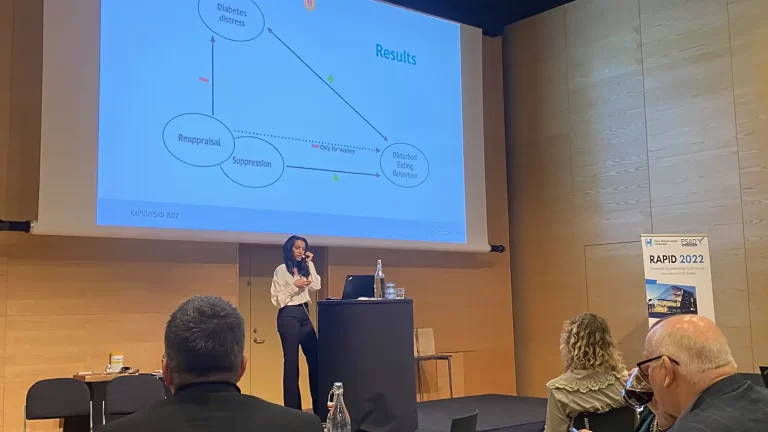[This blog provides general information and discussions about health and related subjects. The information and other content provided in this blog, or in any linked materials, are not intended and should not be construed as medical advice, nor is the information a substitute for professional medical expertise or treatment. The information was last updated on 30 March 2020]
A Quick Recap
In case you’ve missed the news, we’re in the midst of a global pandemic caused by a novel coronavirus, which causes a disease called COVID-19. Symptoms include fever, sore throat, coughing, fatigue and breathing difficulties.
Covid-19 is spread by direct contact between people, which is why we’re all supposed to practise social distancing and stay home unless it’s really, really necessary to go out. Many people are now working from home, schools have closed in some states, as have restaurants, cinemas and gyms. International travel is banned as every country in the world is considered unsafe.
Life has changed. We’ll all be dealing with that in different ways, depending on our temperament and our situation.
Telehealth
Healthcare has changed too. Our health system is gearing up to take care of coronavirus patients. Elective surgeries are being postponed, some operating theatres are being turned into additional intensive care wards, and some non-COVID patients are being moved into private hospitals or discharged.
With so much pressure on the hospital system, it’s important that Australians stay as healthy as possible to prevent avoidable admissions. That’s where telehealth comes in.
Recent changes to Medicare mean GPs, specialists and allied health professionals can now offer most consultations using phone calls or videoconferencing.
Our practice is now offering telehealth appointments to help you stay as healthy and strong as possible during the pandemic. This helps you get the care you need – particularly if you live with an ongoing condition – from the comfort and safety of your own home. It’ll be just like your usual appointments but without the hassle of finding a parking space! Try a telehealth appointment by calling us on 1300 22 09 14.
What Can I Do?
We can all do our part to slow the spread of coronavirus. This is known as ‘flattening the curve’. The aim is to slow the virus down so that we don’t all get sick at once, overwhelming the healthcare system and running out of intensive care beds.
There are four main things you can do to help flatten the curve:
- Practice good hygiene
- Follow social distancing advice and stay home
- Remain in isolation if you’ve been overseas, have COVID-19 or have been in close contact with someone who does
- Maintain your health.
Hygiene Advice
Maintaining good hygiene helps to stop the virus spreading by keeping it off your hands or other surfaces.
You should:
- Wash your hands regularly and thoroughly for at least 20 seconds. Since singing a song can help you stay there scrubbing, some celebrities have released hand-washing songs (Gloria Gaynor’s ‘I Will Survive’ seems the most apt!)
- Stop touching your face as the virus can transfer from your hands and enter your body through your mouth, eyes or nose
- Disinfect your phone, keyboard, door handles, light switches, taps and other hard surfaces often.
Social Distancing
Social distancing helps slow the spread of the coronavirus by limiting contact between people.
On March 29, the National Cabinet issued strong guidance to all Australians to stay home unless it is necessary to go out to:
- Shop for food or other essential supplies
- Receive healthcare
- Exercise (alone, with members of your household or with one other person)
- Work or study if it is absolutely not possible to do this from home.
We are so used to ‘just popping out’ to get whatever we need whenever we feel like it. But we have to think and behave differently now.
You are saving lives by staying home. Only go out when you really need to, and, when you do, keep at least 1.5m between you and other people (many supermarkets now have these spaces marked out in the check-out queue).
Isolation
People who have, or are at high risk of having, the coronavirus should stay in isolation for two weeks. That includes everyone returning from overseas, people who have tested positive for COVID-19 and people who have been in close contact with a confirmed case.
Isolation means you don’t go out at all. If you need food or medicines, then ask friends to shop for you and leave the items on your doorstep, or contact your state or territory health department for assistance.
Maintaining Your Physical Health
If you already have a chronic condition, it’s important that you continue to receive your regular healthcare to manage your illness. This pandemic will last many months and that’s too long to go it alone with a chronic disease.
You are allowed to leave home to receive medical care but we strongly encourage you to stay home and use our telehealth service instead.
Managing Your Mental Health
It’s not easy to adapt to unwanted changes that affect your life. Few people cope well with a loss of control over things that matter to them, nor with being separated from the support of family and friends.
You can care for your mental health during this time by:
- Acknowledging your grief over these changes
- Following your usual routine as much as possible, such as getting up/eating/working/going to bed at the usual time
- Exercising to maintain physical fitness and to lighten your mood – join the kids in PE with Joe or walk around your suburb in the cool of the evening
- Connecting with the people you care about through Facetime or phone calls
- Taking up a new home-based hobby or interest – get out your old guitar, take YouTube lessons in drawing, play board games with your family, or teach yourself Swahili
- Changing your thinking – this won’t last forever and each day brings us one step nearer to the other side of the pandemic
- Seeing your usual doctors or therapists through telehealth if you have a diagnosed mental health condition.
How Can We Help You?
We understand how challenging this time is. Please make a telehealth appointment by calling 1300 22 09 14 so we can help you stay well.



